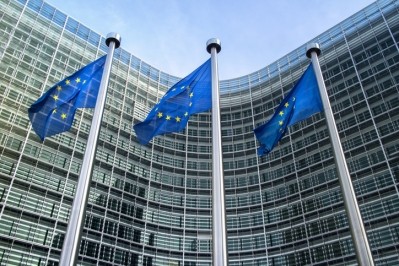‘We need to ensure fairness, healthier food and social rights’: European Parliament pushes ahead with tough unfair trading stance

In a vote today (25 October), MEPs gave Paolo De Castro, an Italian socialist MEP and the rapporteur for UTPs, a mandate to start negotiations on the issue with the EU Council and Commission.
The European Parliament plenary backed De Castro’s report on UTPs with 428 votes in favour and 170 votes against. The first trilogue meeting will be held between the Parliament, Council and Commission later today, De Castro said.
Speaking after the vote, De Castro expressed a desire to move the negotiations on at a rapid clip. “We have not wasted time… and we will begin consultations immediately with the aim of finalising the dossier by Christmas. It is the only window of opportunity to approve the new rules before the European Parliament elections in May.”
Making the food chain ‘fairer’?
The UTP proposals – initially put forward by the Commission in April - are designed to shift the balance of power in the food chain in favour of smaller actors, including farmers and SMEs. According to the EC, EU farmers receive on average 21% of the share of the value of agricultural products while 28% goes to processors and as much as 51% to retailers.
De Castro and the Parliament’s AGRI Committee proposed a series of amendments that they believe will strengthen the hand of smaller players further.
“In this battle of David against Goliath we have to arm the weakest - farmers, producers and SMEs that guarantee food supplies to consumers - against practices such as last minute cancellation of orders, late payments, unilateral changes to contracts, missed payments for unsold goods,” De Castro said. “We need to ensure fairness, healthier food and social rights… By doing so we will work hard to ensure that consumers can continue to have access to the best quality products.”
A crucial area of debate has emerged over the question of who should be included in UTP regulation. According to the European Parliament proposals, regulation should be applied to all actors in the supply chain and the burden of proof should lie with the retailer. Food industry bodies representing manufacturers, such as FoodDrinkEurope, support this stance.
Speaking after the vote, FoodDrinkEurope Director General, Mella Frewen, said: “We are pleased that today marks a significant step in the right direction, for all actors in the agri-food chain, in our efforts to end unfair trading practices. We now have a historic opportunity to bring fairness and predictability to all in the food supply chain."
However, retailers and consumer groups have argued that large branded manufacturers do not require such protections. They have also suggested that the inclusion of big brands will drive up retail prices and limit consumer choice.
Responding to today’s vote, EuroCommerce director-general Christian Verschueren commented: “There has been a lot of – often emotive – language and pressure from a number of players on MEPs to adopt amendments which are no doubt driven by a legitimate wish to help farmers, but will instead make already powerful food multinationals even stronger.
“We ask the rapporteur, Commission and Council to negotiate a balanced final outcome, which respects its agriculture legal basis, delivering benefit to farmers, and reflects the objectives and spirit of the original Commission proposal.”
This means focusing coverage on farmers and SME suppliers, not large manufacturers, removing the reversal of the burden of proof and provisions on economic dependency, which will “harm” SMEs, EuroCommerce said. It also means keeping the list of prohibited and restricted practices “limited and clearly defined” in a way that enforcers can monitor and apply without creating legal doubt and delay.
Retailers and consumers ‘defenseless’ against multinationals
The Parliamentary mandate, as adopted today, prohibits 58 practices by buyers – but none by large sellers. Verschueren argued that this leaves retailers and consumers “defenseless against unfair treatment by multinational manufacturers”.
“Many of these changes have been pushed for by global brand manufacturers with the aim simply of increasing their returns to shareholders. This is not about fairness, and we call on negotiators to make sure that the final text adopted brings positive results for consumers, SMEs, farmers, and European jobs,” Verschueren said.
The EU consumer organisation BEUC also said it was “disappointed” at the outcome of the vote. “This is a very complex debate and the stakes are high. The entire European Parliament should have taken the necessary time to scrutinise the AGRI committee mandate,” Camille Perrin, team leader food, said.
“No one disputes the need to protect small farmers and food producers against unfair trading practices in the food chain. But the AGRI report includes far-reaching amendments to the original Commission proposal which could result in less choice and higher prices for consumers. This is not our vision of a fair food chain.”
Perrin called for the reversal of this “unreasonable development” through the negotiations with the EC and European Council. “We expect EU governments, in their negotiation with the European Parliament, to refocus this proposal on what it originally was about: improving the position of small suppliers in the food supply chain, not risking higher prices and less choice for consumers.”

















